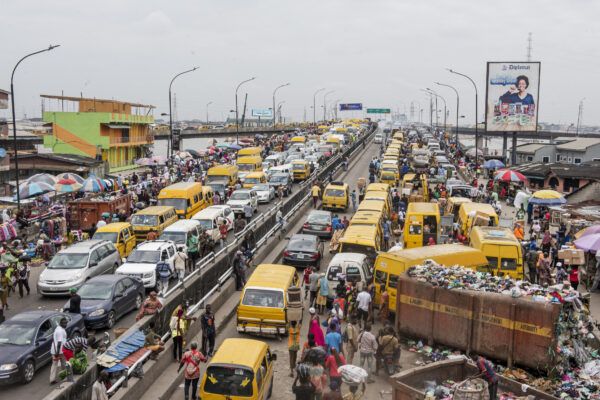The World Health Organisation (WHO) and Government of Colombia convened over 700 people from over 60 countries, including Ministers of Health, Environment and Energy, mayors, health professionals and campaigners for the Second Global Conference on Air Pollution and Health.*
Commitments made by governments
Countries, cities and organisations endorsed a global target and roadmap agreed by Ministries of Health at the WHO in February 2025 to reduce the health impacts of air pollution by 50% by 2040, compared to 2015.
Representatives from 17 governments announced national commitments during the conference to tackle air pollution and safeguard health:
- Several governments, including the UK, Brazil, Mexico, China and Vietnam, committed to update and implement their national plans and standards to align more closely with the WHO guidelines for air quality.
- Multiple governments pledged to update sectoral policies to improve air quality, including Germany, Mexico and Mongolia. Mexico additionally highlighted including black carbon in their national vehicle regulations to reduce particulate matter emissions.
- Spain, Norway, Somalia and Cuba made commitments to transition to cleaner energy in key sectors, including health and agriculture.
- The UK committed new funding, in addition to their ongoing support of the Climate and Clean Air Coalition, to the Africa Clean Air Programme. Norway pledged to continue international development support to combat air pollution.
- The governments of Philippines, Pakistan and France highlighted the economic burden of diseases caused and exacerbated by air pollution on health systems and called for mobilisation of more resources to tackle pollution across sectors.
- Mongolia pledged to embed air quality in their National Action Plan on Noncommunicable Diseases and include it in the national medical curriculum.
- Spain, Vietnam, Mongolia, Mexico and a representative from the Gambia committed to improving air quality and health data, and making it publicly available.
- The government of Colombia – already a leader in designing their climate commitments to maximise health benefits – pledged to further embed an understanding of the health benefits of clean air action.
- Commitments to improve health impact assessment and surveillance were also echoed by Brazil, France, India, Philippines and Vietnam.
Cities also demonstrated the leadership of mayors as a driving force for clean air. The co-chairs of C40 Cities from London, UK and Freetown, Sierra Leone, representing mayors from almost 100 of the world’s biggest cities, also committed to reducing air pollution. Health associations and civil society organisations pledged to integrate air pollution and planetary health into medical education, as well as equipping healthcare professionals with the knowledge and tools to address its health impacts.
To achieve clean air, we need urgent actions on all fronts: financial investment in sustainable solutions, such as in clean energy and sustainable transport; technical enforcement of WHO global air quality guidelines; and social commitment to protect the most vulnerable in our most polluted regions. We estimate that meeting our objective would save around 3 million lives every year.
Dr Tedros Adhanom Ghebreyesus, Director-General of the WHO
Ahead of the conference, 48 million health professionals, patients, advocates and civil society organisations signed a resounding call for urgent action to reduce air pollution and protect people’s health.
Our pledge to ramp up clean air action
Clean Air Fund fully endorses the WHO roadmap target to cut the health impacts of air pollution by half.
As we heard this week, this target is urgent, necessary and achievable. Delivering on this vision will save tens of millions of lives by 2040, and improve the lives of billions of people living with heart disease, lung disease, cancer and mental health conditions. It will halve the number of babies and young children dying – at the moment a child dies every minute due to toxic air. We strongly encourage all governments to commit to this goal. We also urge the WHO to monitor and celebrate governments’ progress on this critical challenge for people and planet.
Jane Burston, CEO of Clean Air Fund
At the conference, our CEO Jane Burston pledged a further $90million from Clean Air Fund for climate and health efforts in the next two years, in addition to the $110million already spent to date. We also aim to catalyse increased investment from global finance institutions to improve air quality in low- and middle-income countries.
* The Second Global Conference on Air Pollution and Health was also supported by the Governments of Norway, UK, Spain, France, and Netherlands, as well as the World Bank, UN Environment Programme, World Meteorological Organization, UN Department of Economic and Social Affairs, the Climate and Clean Air Coalition, Bloomberg Philanthropies, Wellcome Trust and Clean Air Fund.


